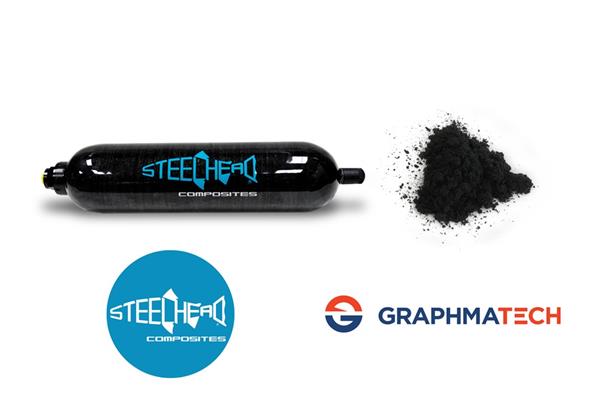
The partnership will allow to produce a composite of polymers and graphene flakes to safely transport and store hydrogen.
Graphmatech, the Swedish partner of Graphene Flagship, has announced a co-operation with the American company Steelhead Composites to develop and produce a new high performance type IV pressure vessels to transport and store hydrogen. The project will combine the vessel technology, services and market position of Steelhead Composites with the graphene-polymer composites of Graphmatech.
“Partnering with Steelhead Composites is a big step forward in our mission to enable the green transition with graphene. We’re eager to develop and launch this graphene enhanced hydrogen pressure vessel liner together,” has stated Mamoun Taher, the founder and CEO of Graphmatech.
Hydrogen may be a potential solution to decarbonise the steel and chemicals sectors where electrification is hard to implement, as well as a green fuel for vehicles. Yet, it poses several engineering challenges: as its gas molecules are very small, they can easily escape through different types of materials. In addition, it is stored at high pressure and extremely cold temperatures, that however increase during re-fuelling. So, the liner of hydrogen tanks needs to be able to handle these drastic temperature changes.
Type IV pressure vessels that store hydrogen usually have a plastic liner covered by a carbon-fibre composite material that adds strength, but it is prone to leak hydrogen into the atmosphere. Graphmatech devised a composite of polymers and graphene flakes that is less permeable to gas, more electrically and thermally conductive and easier to process in a wide range of manufacturing technologies.
“As we strive to manufacture and deliver the best hydrogen storage solutions across the globe, we are thrilled to embrace innovative technologies like Graphmatech’s graphene-polymer composites,” has added Andrew Coors, the CEO of Steelhead Composites.
“I am excited by the progress of this important partnership that aims to use graphene to help the hydrogen economy, tackling the concerning issue of hydrogen leakage. This will make hydrogen storage and transport cheaper, safer and more environmentally-friendly,” has concluded Kari Hjelt, the head of innovation for Graphene Flagship.